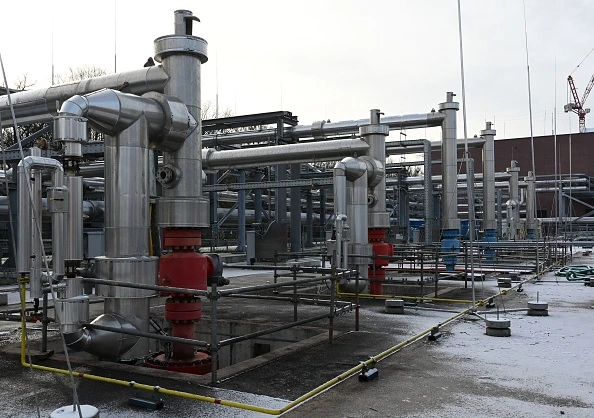
Introduced earlier this year, a new law in Germany has seen the government banning gas-fired boilers in new houses. As the country’s cities search for alternatives, one energy source is heating up, so to speak – geothermal.
“Geothermal energy has enormous potential, especially in big cities where there are few other alternatives,” Rolf Bracke of the Fraunhofer Institution for Energy Infrastructures and Geothermal Systems, told the FT. “I’m not going to be able to build a big solar park in the middle of Berlin – I can only go underground.”

Harnessing the planet’s natural heat, geothermal energy provides a reliable and constant source of power with minimal environmental impact. Global cities, driven by their commitment to combat climate change and foster energy security, are now exploring the potential of geothermal resources.
As the world grapples with the urgent need to transition to sustainable energy sources, can geothermal energy emerge as a viable and underutilised option? Some leading global cities already stand at the forefront of utilising geothermal energy, demonstrating the possibilities it holds for a greener future.
Reykjavik, Iceland
Reykjavik, the capital city of Iceland, is a pioneer in harnessing geothermal energy, and not just for tourist attractions such as the Blue Lagoon. Positioned atop the Mid-Atlantic Ridge, the city benefits from a wealth of geothermal activity, making it an ideal location for geothermal power plants and district heating systems. More than 90% of Reykjavik’s heating needs and a significant portion of its electricity are supplied by geothermal energy, substantially reducing its carbon footprint. The city’s success in integrating geothermal energy into its infrastructure serves as a testament to its potential for replication in other global urban centres.
Tokyo, Japan
As Japan aims to decrease its reliance on nuclear power and fossil fuels after the Fukushima disaster, Tokyo has embarked on a mission to embrace renewable energy sources, with geothermal energy at the forefront. Japan is geologically active, and the city lies in close proximity to several geothermal reservoirs. Tokyo’s local government and private sector have invested in cutting-edge geothermal technologies, exploring the potential of both direct-use applications and geothermal power generation. However, the city and other regions of Japan have run into several roadblocks, including from its hot springs businesses as they don’t want development to impact centuries-old traditions.
“It’s domestic, it’s renewable,” said Jacques Hymans, an energy expert at the University of Southern California, to the New York Times. “It’s all the things Japan needs.”
Wellington, New Zealand
New Zealand is home to some of the world’s most impressive geothermal activity, and its capital city, Wellington, is aware of the vast potential beneath its feet. With its geothermal resources providing an invaluable natural advantage, Wellington is actively promoting geothermal energy as part of its long-term energy strategy. The city’s commitment to sustainability has already led to several geothermal projects, including district heating schemes, recreational bathing facilities, and research into enhanced geothermal systems.
Los Angeles, US
The west coast of the US has seen clashes between environmental species preservation and renewable energy projects, and Los Angeles faces significant energy demands and environmental challenges. In recent years, the city has shown progress in promoting renewable energy sources, including solar and wind power. Now, Los Angeles is beginning to explore its untapped geothermal potential, leveraging its geothermal reservoirs for electricity generation and direct-use applications. As the city strives to become carbon neutral, geothermal energy could provide a steady and clean power source that can complement its existing renewable energy initiatives. In fact, California is the largest generator of electricity from geothermal energy in the US.
[Read more: How sustainable is nuclear energy for the UK?]






